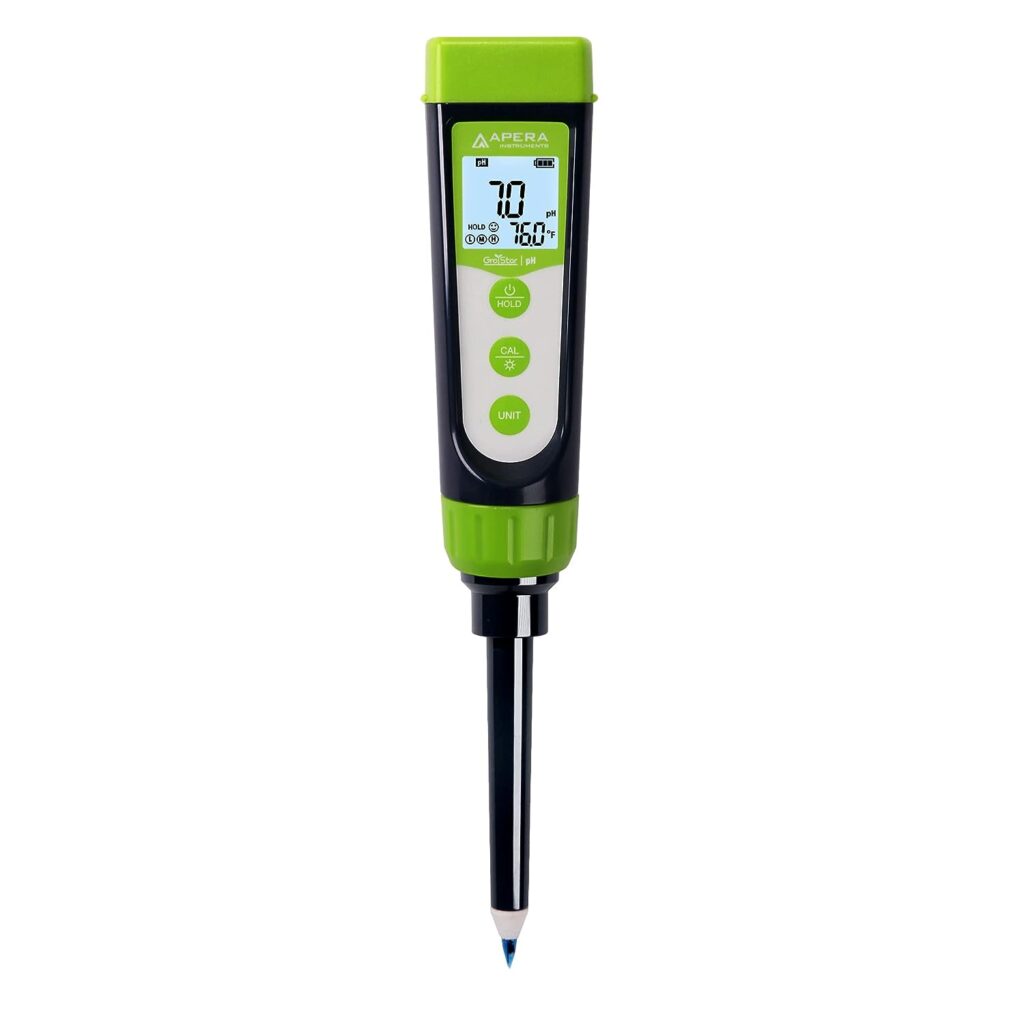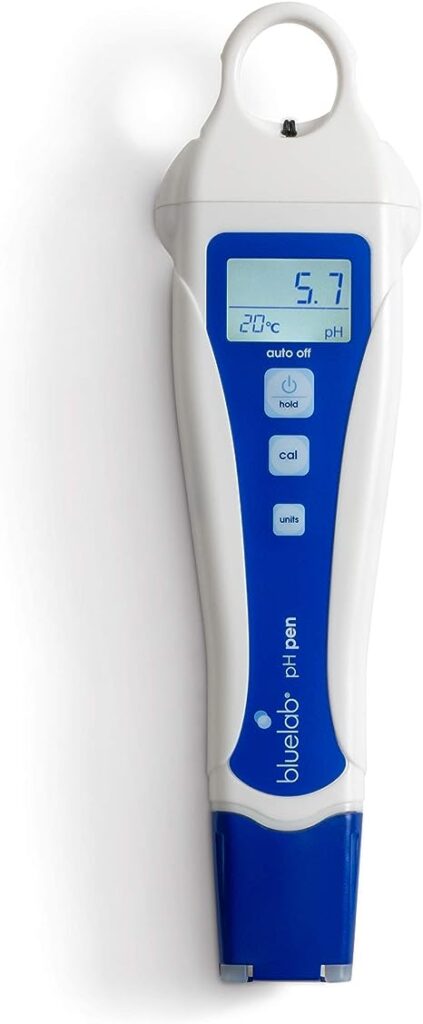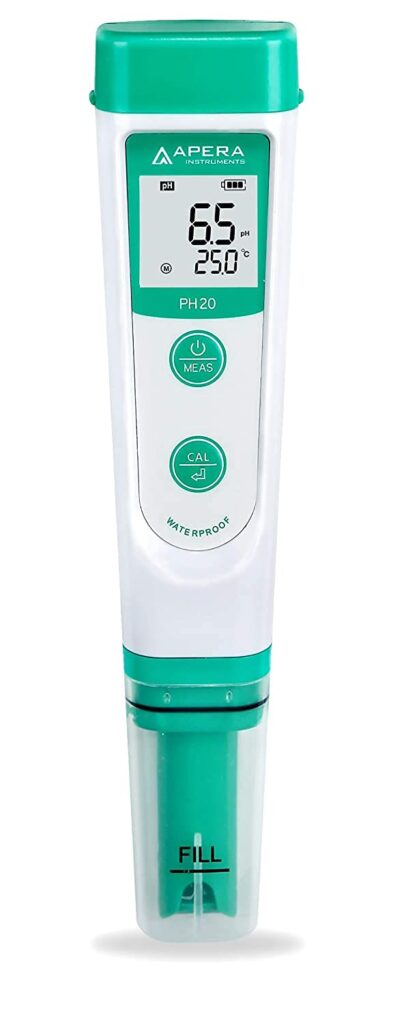To grow plants and cultivate vegetables indoors or outdoors the pH meter for soil becomes an indispensable tool that measures the acidity and alkalinity of soil.
If the pH level is too high or too low it can lead to nutrient deficiencies and stunting growth. A strong microbial community that helps with nutrient cycling and disease prevention is encouraged by maintaining a desirable pH level.
Numerous options are available in the market which may confuse you or can make it challenging for you to select the best pH meter for soil for your indoor lawn and gardening.
In this article, we’ll discuss some good pH meters and their features and let you decide which one suits you the most.
Let’s get started.
Choosing the best pH meter for soil
By ensuring the right pH balance, a pH meter helps maximize crop yields, enhance plant health, and promote overall soil sustainability.
While searching pH meter for soil I looked for various options and studied their features. I decided that Apera Instruments Grostar GS2 is one of the best soil pH meters. It has a specially designed probe for testing soil and lots of people are happy with its measuring results.
Following are some parameters based on which I made this selection. They are:
a. Accuracy and Resolution
How accurate the pH meter provides reading is depends upon its accuracy and resolution.
The accuracy of the majority of pH meters is ±0.01pH of ±0.1pH and the resolution is 0.01pH of 0.1pH. For temperature measurements, it offers an accuracy of ±1℃/±1℉.
Take a look at pH meter accuracy and resolution while considering it.
b. PH range
Different pH meters offer different pH ranges for measurement. The pH range means up to which level a pH meter can read the solution’s pH value.
A pH meter with 0 to 14 is considered reliable and accurate for pH calculation.
Selecting the appropriate pH meter with the right pH range is crucial to ensure accurate measurements for a particular application.
c. Calibration
Calibration in a pH meter is the process of adjusting and setting the instrument to ensure its accuracy in measuring pH levels.
It involves comparing the pH meter’s readings to reference solutions with known pH values to determine accuracy.
Different points of calibration are given by various pH meters. Choose the meter that suggests appropriate and easy calibration.
d. Electrode type
The design and material composition of the sensor used to measure the pH levels in a solution are referred to as the electrode type in a pH meter.
The glass electrode is a standard electrode used in many pH meters. There are also reference electrodes that should be of high quality.
Choosing the proper electrode type is crucial to ensure accurate pH measurements in varied circumstances.
e. Temperature compensation
The pH meter can adjust its reading according to the temperature of the solution being measured, this is due to the auto temperature compensation feature.
The pH level is susceptible to the smallest change in the temperature. Different pH meters offer various compensating temperatures.
Select the meter with a high compensation temperature so that you can get an accurate pH reading.
f. Display
The display of a pH meter is very important as it will show the measured result. Nowadays, most pH meters have a digital display, but some have an analog display.
The digital display presents results in numeric and the analog display has a needle that points toward the measured value.
The digital display provides more accurate and reliable information than the analog display.
g. Portability
Portability in a pH meter refers to its ability to be easily carried and used in different locations. The portable pH meter should be compact, lightweight, and battery-powered.
Users may get real-time pH data wherever it’s needed with the flexibility and convenience of portable pH meters, free from the restrictions of being tied to a set location or power source.
h. User-friendly
In the context of a pH meter, “user-friendly” refers to how simple it is for a user, whether an expert or a novice, to operate the device successfully and efficiently.
The meter must have easy user interference, easy calibration, and a readable display. Considered a pH meter that is user-friendly and easy to use.
Also, consider the portability factor when choosing any pH meter.
List of top pH meters for soil
In this section, let’s explore some good pH meters for soil to enhance crop yield and plant growth.
1. Our selected: Grostar GS2
Apera Instruments designs and manufactures different sensory and testing tools for precise measurements. The Grostar GS2 (Amazon link) is a pH meter that is specially designed for soil testing with a pen-shaped probe.

The Good
Let’s talk about the features that make this pH meter the best.
Provide appropriate pH range for soil: The pH range of the meter is from 0 to 14. The recommended pH for soil is 5.8 to 7.2 pH which means this pH meter is suitable and precise for various soil measurements or testing.
Offer reliable accuracy and resolution: The accuracy and resolution of the pH meter is ±0.1pH and 0.1pH for pH measurement. For temperature measurement, the accuracy offered by this pH meter is ±1℃/±1℉.
Temperature compensation for different temperatures: This pH meter provides auto temperature compensation which means it will adjust the reading according to the temperature of the solution, and it ranges from 0 to 50˚C (32 to 122 ˚F).
Provide HD display for readable pH value: To display results it has HD quality readable LCD. It has 3 different colors to indicate different modes. If the screen color is white it means measurements, green is for calibration and red is for error reminders.
Easy calibration for convenient use: It offers easy and reliable calibration to make it a ready-to-use tool. The pH meter has 1 to 3-point (4, 7, 10) auto-calibration and indicates when the device needs recalibration.
Specialized probe for soil testing: The pH meter has specialized and replaceable electrodes for soil testing. It uses a pen-shaped electrode to measure your soil’s pH directly and allows you to keep track of your soil’s actual pH level.
Other valuable features: The other essential feature of this pH meter is the measurement mode which automatically captures stable pH readings in different soil locations, and also has data hold and low-battery indicator. From water protection, it has IP67 specifications.
The bad
The Grostar GS2 pH meter includes all the characteristics a pH meter needs to have to get accurate results, but it also has certain drawbacks.
The pH meter doesn’t have a storage option, which means it will not save any measured pH data. Sometimes we need data storage for future use.
Apart from this, this pH meter is the best for soil acidity and alkalinity testing.
The downright ugly
The downright ugly side is this pH meter is expensive and it doesn’t offer the connectivity option to PCs or smartphones. Maybe some need that feature to study their measured data.
2. Also Great: Bluelab pen pH
Bluelab provides the newest and most accurate testing technology that helps in the growth and health of plants. The Bluelab pen pH meter is hand-held and measures pH and temperature in the soil giving optimal outcomes.

Important features:
- The pH meter has an accuracy of 0.1 pH and provides reliable and valuable performance.
- It offers auto temperature compensation (ATC) which means it adjusts the pH value according to solution temperature. The ATC ranges from 0 – 50 °C, 32 – 122 °F.
- The meter has a double junction electrode which is less suspected of contamination as compared to a standard probe.
- For complete soil and water nutrient monitoring in indoor gardens, the meter is combined with ppm meters.
- The pH meter has easy and auto 2-point calibration (7.0 and 4.0).
- It is fully waterproof not just water resistant so it can be placed in water if needed.
- The meter has other essential features like an Auto-off function, a low battery indicator, and units for temperature.
The Bluelab pen pH (Amazon link) has lab-quality glass electrodes that measure the pH level in different solutions and soil to enhance the convenient and accurate system from growth.
3. Also Great: Apera Instruments PH20
Apera instruments offer high-quality and affected pH testers for various applications. The Apera Instruments PH20 (Amazon link) has a high-sensitive glass probe and a large LCD for accurate reading.

Important features:
- The pH meter measure pH value from 0 to 14 pH with accuracy.
- It has 3-point auto calibration for easy measurement of the pH level of the soil.
- The meter has accuracy and resolution ±0.1 pH and 0.1 pH which means it can detect the change of 0.1 units.
- It also has auto temperature compensation for precise readings and temperature ranges from 0 to 50°C (32 to 122°F).
- The meter is floatable because of its IP67 specifications.
- Additional features that this pH meter offers are self-diagnosis, low-battery warning, and auto-power-off.
The bulb-shaped electrode, temperature sensors, and other high-battery life make Apera Instruments PH20 (Amazon link) a suitable choice for testing soil for your plant health.
Conclusion
For essential plant growth and to ensure optimal nutrient availability to plants the pH meter is a crucial tool. It enables farmers and gardeners informed decisions about soil amendments.
You might get confused after looking at different pH meters with innovative features and this also makes your selection challenging.
Some factors should be considered while looking for a pH meter for soil testing.
- Easy to use
- Portability
- Easy calibration
- Temperature compensation
- Accuracy
- Display
I followed extensive research to find an outstanding pH meter for soil, I concluded that the Grostar GS2 (Amazon link) is the best pH meter for soil. The recommended accuracy and pen-shaped electrode probe make it a good choice for soil analysis.
Questions
Let’s answer some frequently asked questions about pH meters in this section.
Q1. Why is measuring pH important?
Measuring pH is important because it offers important information about a substance’s acidity or alkalinity, which is useful in a variety of disciplines like agriculture, chemistry, and environmental science.
Q2. What factors can affect pH measurements?
Several factors can affect the pH measurements such as changes in temperature, if the electrode gets contaminated, and electrode condition. The pH meter electrode age can impact the accuracy.
Q3. What are buffer solutions, and why are they necessary for calibration?
The pH-known, stable solutions are called buffer solutions, and they are used to calibrate pH meters. They are essential for calibration because they offer reference points against which the pH meter may be calibrated and its accuracy checked.
Q4. Are there any safety precautions I should be aware of when using a pH meter?
Yes, when using a pH meter, it’s essential to follow safety precautions like wearing gloves to protect your skin. Avoid damaging the pH electrode by handling acidic or alkaline liquids carefully as this can compromise accuracy and safety.
Q5. Can I use a pH meter in extreme pH conditions (very acidic or very alkaline solutions)?
In general, pH meters should not be used in situations with severe pH levels since they could be destroyed or give false readings. In these circumstances, specific equipment made for severe pH ranges should be taken into account.
Other useful posts:
